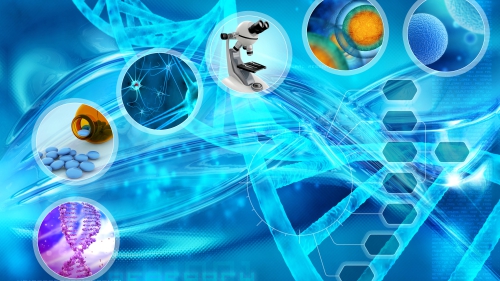Keeping Up With The Ketos

At restaurants, your friends are ordering bunless burgers with a side of avocado smothered in cheese. At the local coffee shop, they are drinking sugarless lattes made with heavy cream. At home, they are eating cheddar and mozzarella omelets. What new eating trend is this? Welcome to the world of ketogenic dieting. What is a ketogenic diet, keto for short? It is a diet that consists of eating high fat, low carb/low sugar foods.
According to The Cleveland Clinic, the average American diet consists of more than 50% carbohydrates. In the body, carbohydrates break down into smaller molecules of glucose (a simple sugar). The body’s cells, in turn, burn the glucose molecules for energy. The macronutrient percentages may fluctuate, the ketogenic diet generally (for the average healthy person) follows the following pattern:
- Approximately 75 percent of daily calories from fats
- Approximately 20 percent of daily calories from proteins
- Approximately 5 percent of daily calories from low carbohydrate foods
When you drastically cut out carbohydrates, the body depends upon the burning of fats for energy. And because we all paid attention in chemistry class, you remember that fats break down into fatty acids and ketones in a process called ketosis. It takes most people one to three weeks for the body to enter ketosis, which is the time frame when many people start to see a difference in their weight.
I know what you’re thinking. Why would anyone consider a ketogenic lifestyle? Well, the number one reason is rapid weight loss. Keto diets allow the dieter to feel full longer because fatty food takes longer to digest. Keto diets have found success despite the plethora of diets because, as Americans, we generally love fatty foods. Eating fat to burn fat makes us excited about this diet versus all the other restrictive diets (remember the torturous grapefruit diet?). Dr. Alvia Siddiqi, vice president of population health at Advocate Aurora Health, weighs in on the reasons for keto’s mass appeal. "There are many health benefits to a ketogenic and low carb diet. Several studies have shown that it reduces triglycerides, improves the good cholesterol (HDL), helps with weight management, and reduces visceral fat surrounding the internal organs." Because a ketogenic diet exhibits weight loss results faster than most other diets, it may be effective in helping to treat Type-2 diabetes as well as patients who have a body mass index (BMI) in the obese to morbidly obese range (generally a BMI over 40). Aside from rapid weight loss, a ketogenic diet may be beneficial for other reasons. According to the Mayo Clinic, endurance athletes, such as triathletes and marathon runners, can benefit because the energy lasts longer. The National Institutes of Health states that ketogenic diets have been used since the 1920s as a type of treatment for epilepsy. Epilepsy is a metabolic disease. The breakdown of fats to produce ketones alters the metabolism to utilize fats as energy. Research conducted by Dr. Cobb and Dr. Lennox of Harvard Medical School showed that the effects of starvation could be used as a treatment for epilepsy. Because the ketogenic diet mimics "fasting" (lack of sugar), it has been used to treat certain types of epilepsy. Research is still being done on whether or not a keto diet may help with treating patients with other neurological disorders such as Parkinson’s and Alzheimer’s diseases.
Some conditions may become worse under a keto diet. Dr. Kameswari Maganti of Northwestern Memorial Hospital states, "Patients with kidney disease have an increased risk of requiring dialysis on the keto diet due to the additional ketones that their renal system has to process." According to the National Institutes of Health, people with diabetes are at risk of getting ketoacidosis, excess ketones in the bloodstream, which causes the blood to become highly acidic. This is a very dangerous condition and may be fatal.
If there is no preexisting condition and a person is generally healthy, a ketogenic diet sounds great. Who doesn’t love cream and cheese? Is it everything we have hoped and dreamed about? Not exactly. Everything has a cost (welcome to adulthood). There are pros and cons to a keto diet, even for healthy people. Ayesha Fiaz, clinical trial coordinator for the Neurosciences Institute at Alexian Brothers Hospital, has been an avid fan, researcher, and follower of ketogenic dieting for a year. "You need to do your research and talk to your doctor. There are pros and cons. The pros include seeing weight loss results within a short amount of time while feeling energized, many more options for meals than other diets, and the fats keep you satisfied. The cons include not being able to have a "cheat day" because once you are in ketosis, a cheat day could ruin your progress. It is usually not recommended to continue ketogenic dieting long term without breaks, so be sure to consult with your doctor. You miss out on certain vitamins, minerals, and fiber. Also, you need to keep an eye on your cardiovascular health. High amounts of saturated fats from the wrong foods can negatively affect your bad cholesterol (LDL) levels. So make sure to eat quality fats such as avocado, nuts, olive oil, coconut products, seeds, etc."
So what exactly does one eat on a ketogenic diet? Let’s take a look at what can and cannot be consumed on a ketogenic diet:
| Keto-friendly | Not keto-friendly |
| Nuts, seeds, avocados | Bread, pasta |
| Full fat milk, cheese, plain Greek yogurt | Cereals, desserts, anything with sugar added |
| Non-starchy and fibrous vegetables, leafy greens, cruciferous vegetables, low carb berries (blackberries, raspberries, strawberries) | Starchy vegetables (potatoes, sweet potatoes, corn, peas, carrots, beets, squash, parsnips, turnips) |
| Animal protein such as meat, poultry, seafood, and eggs | Beans, lentils, most legumes |
| Oils, butter, ghee | Sugary drinks and fruit juices |
| Water, sparkling water, unsweetened drinks such as tea and coffee | Fruits (except low carb berries) |
So, is a ketogenic diet right for you? Maybe. The very first and most important step you must take before starting any diet is to consult with your physician about your total health panel and the ideal healthy weight for you. Do your research. Make sure you understand what you can and cannot eat and keep in mind your weekly schedule. Meal planning in advance is a must. Also, understand that it takes time to get used to a ketogenic diet and any dietary changes can cause initial discomfort such as headaches, tiredness, nausea, constipation, bad breath, and sleep problems. The Cleveland Clinic states that the amount of time a person can be on a ketogenic diet varies. It is advised to take breaks in between stretches of the diet because you need to replenish your body with the nutrients that are missing on the diet. According to the National Center for Biotechnology Information (NCBI), it is not recommended to be on the ketogenic diet for more than 12 month stretches even if you are in optimal health. They caution that one should closely monitor kidney functions while on the diet. There is not enough conclusive data to pinpoint the exact amount of time for a person to remain on a ketogenic diet because individual health situations need to be taken into consideration. It is also easy to get sidetracked into unhealthy ketogenic eating. In fact, U.S. News and World Reports named the ketogenic diet as "one of the worst diets." This is because that most individuals do not follow the diet as recommended by doctors by eating whole and unprocessed foods, monitoring water intake, eating quality fat, quality protein, and quality carbohydrates, keeping micronutrients in check, and following the plan under the care of a licensed healthcare professional. Understand that most dietary changes that are extreme need to be monitored closely and regularly checked by your doctor. Also, make sure you understand the difference between a diet change and a lifestyle change. Happy eating!!!
*****
Husna T. Ghani has an MSEd and an MBA. She has taught health and science for years. When she’s not working, she reads, writes, sketches, and tries to save the world (or something like that).
Reprinted from the Spring 2020 issue of Halal Consumer© magazine with permission from the Islamic Food and Nutrition Council of America (IFANCA®) and Halal Consumer© magazine.
Topics: Food, Health, Natural Foods, Nutrition
Views: 1203
Related Suggestions

















